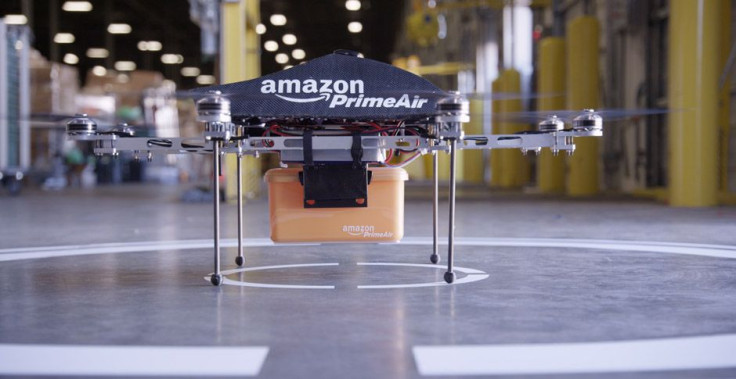Amazon Gets FAA Approval To Test Delivery Drones

Amazon Inc.'s dream of using drones to deliver small packages to customers came one small step closer to reality Thursday after regulators gave the company permission to test aircraft for the purpose.
The FAA issued Amazon with an experimental airworthiness certificate, which will allow it to fly drones for research and development and crew-training purposes.
The flights, however, will have to conform to several safety stipulations under the certificate. Amazon will have to ensure that all its test flights stay under 400 feet, that the aircraft remains within the pilot's line of sight and that the person controlling the aircraft must hold at least a private pilot's license.
Amazon will also be required to provide the agency with monthly data about its testing activity. The company must report the number of flights conducted, pilot duty time per flight, unusual hardware or software malfunctions, any deviations from air traffic controllers’ instructions and any unintended loss of communication links.
In its July 2014 letter to the FAA requesting permission to test drone aircraft, Amazon pledged that all testing would be conducted in a confined area over Amazon private property.
Amazon has been pushing its drones deliver program, dubbed “Prime Air” since 2013. It aims to deliver small packages to customers within 10 miles of a warehouse, or a 30-minute flight. The company is developing drones that can fly at speeds of 50 mph, operate autonomously and sense and avoid objects, the Guardian reported.
While initially many suspected the program was a publicity stunt, the granting of FAA permission for test flights suggests that the company is making some kind of attempt to incorporate drones into its future business model.
Even if Amazon developed safe, reliable drone delivery vehicles, however, FAA regulations may be a stumbling block that Amazon's aircraft will be unable to rise above. The agency proposed a draft set of new rules for commercial drone use last month, which included stipulations that drones must stay within the line of sight of their operators, cannot drop items from the sky and cannot fly over anybody who is not "directly involved with the flight." These restrictions, if implemented, would effectively rule of the possibility of delivery drones.
© Copyright IBTimes 2025. All rights reserved.





















